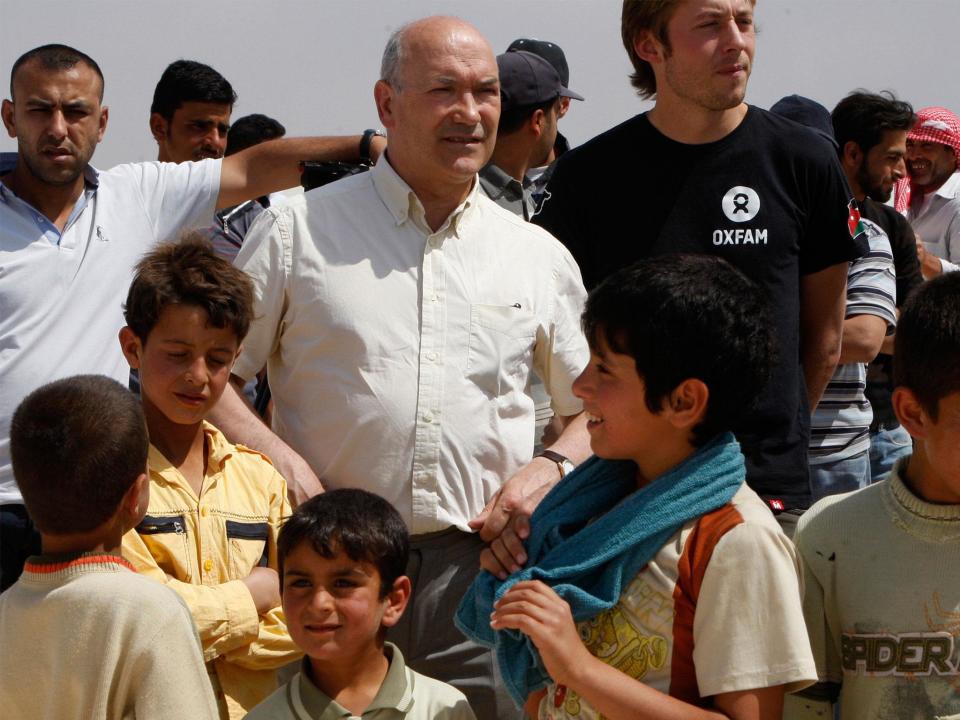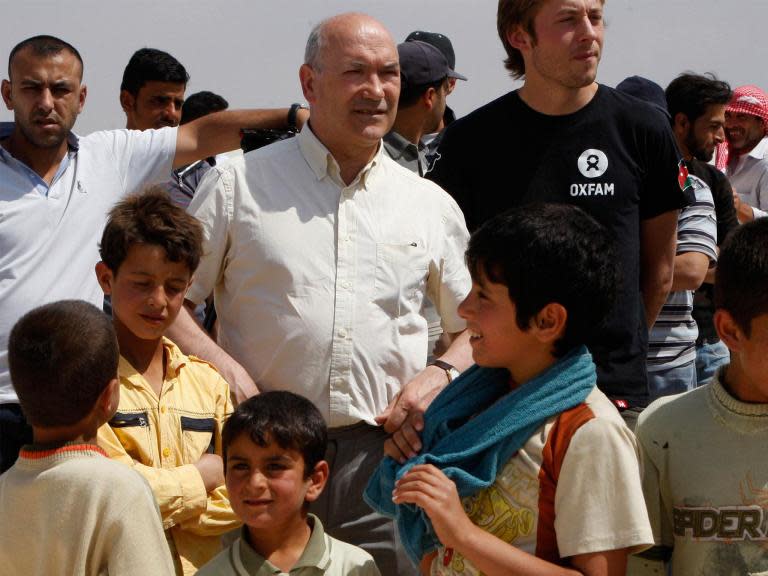Oxfam chief executive Mark Goldring to stand down at end of 2018 after Haiti sex scandal
The embattled head of Oxfam GB has resigned in the wake of a scandal over sexual misconduct by its staff in Haiti and other disaster zones.
Mark Goldring, who resisted pressure to step down amid outcry in February, said he was “proud” of the charity’s work over the past five years.
“But I think the time is coming for a new leader,” he added. “Following the very public exposure of Oxfam’s past failings, we have redoubled our efforts to ensure that Oxfam is a safe and respectful place for all who have contact with us.
“We are now laying strong foundations for recovery. I am personally totally committed to seeing this phase through.”
Following anger over revelations that Oxfam staff had used prostitutes in Haiti in 2011, Mr Goldring provoked fresh ire by claiming the reaction was “out of proportion”, adding: “The intensity and the ferocity of the attack makes you wonder, what did we do? We murdered babies in their cots?”
He later apologised for the remark while being grilled by MPs in a session where he revealed that Oxfam donors cancelled 7,000 direct debits in just 10 days after the scandal broke.
Mr Goldring, who will leave his post when a successor is recruited, first worked for Oxfam as Bangladesh country director in the 1990s and became its chief executive in 2013.
He said that Oxfam will “rebuild and renew” to help tackle poverty and respond to crises including the wars in Yemen and Syria.
“I think that this journey will best be led by someone bringing fresh vision and energy and making a long-term commitment to see it through,” he added.
The Charity Commission said it had not asked for Mr Goldring’s resignation.
“Oxfam GB informed the commission that its CEO has decided to step down at the end of the year,” a spokesperson said. “Our statutory inquiry into the charity continues; we will publish a report on that investigation once it concludes.
“The commission’s investigation is in progress and no findings or conclusions have yet been made.”
Caroline Thomson, chair of Oxfam, said she had accepted Mr Goldring’s decision “with great sadness and with thanks for his dedication and leadership”.
“Mark faced the test of a lifetime managing the crisis which hit us in February and related to events before he joined,” she added. “He rose to the immense challenge and his leadership has been invaluable through it.
“It is testament to his integrity and humility that Mark will see through the next few difficult months.”
Ms Thompson described Oxfam as a “great institution representing the best of British values” as it works to regain support lost from both politicians and the public.
The government has barred Oxfam from bidding for new funding until it meets the “high standards” expected for safeguarding both staff and vulnerable people.
A statutory inquiry was launched by the Charity Commission over allegations the organisation wrongly told the authority the abuse in Haiti did not involve beneficiaries or potential criminality.
Four members of Oxfam staff were dismissed and three, including country director Roland van Hauwermeiren, resigned before the end of the 2011 investigation but many were re-employed in the aid sector or even by Oxfam itself.
The charity’s former deputy chief executive, Penny Lawrence, was the first to resign, saying she took “full responsibility” for the alleged use of prostitutes by senior staff in Haiti and Chad.
But the scandal deepened after The Independent revealed Oxfam and other charities were warned that aid workers were raping children in Haiti a decade ago, and fresh cases emerged.
Oxfam’s former safeguarding chief said she raised concerns internally but had a meeting with Mr Goldring cancelled in 2014.
Helen Evans said she had received reports of workers coercing women into sex in exchange for aid, targeting fellow staff and acting “inappropriately” towards teenage volunteers in Oxfam’s UK charity shops.
Oxfam has launched its own independent commission on sexual abuse and exploitation, which is reviewing its culture and the “safeguarding” systems in place to protect beneficiaries and staff.
The charity is also introducing new standards for references to prevent former employees found guilty of gross misconduct from finding work elsewhere in the aid sector and creating a global hub for references from accredited staff.
Oxfam GB has launched an independent whistleblowing hotline and standardised the way safeguarding cases are recorded globally, while recruiting additional staff and tripling the annual budget for the area to £720,000.
The scandal sent shockwaves through the aid industry, prompting a tide of accounts of misconduct and a separate probe by the Charity Commission into Save the Children’s handling of sexual misconduct by staff.
By early March, the watchdog had received new reports of 80 serious incidents involving safeguarding, including allegations of child sexual abuse, from British charities that were ordered to provide assurances that their policies were up to scratch.
At a summit held by the Department for International Development (DfID), they agreed measures including an independent body on safeguarding, new standards for vetting and referencing, support for whistleblowers and survivors of exploitation and work to address an “organisational culture” of power imbalances and poor reporting.
DfID is implementing new standards for organisations receiving British funding and has pledged to form a taskforce that could be sent to investigate alleged abuses in foreign countries, with information passed to the National Crime Agency.


